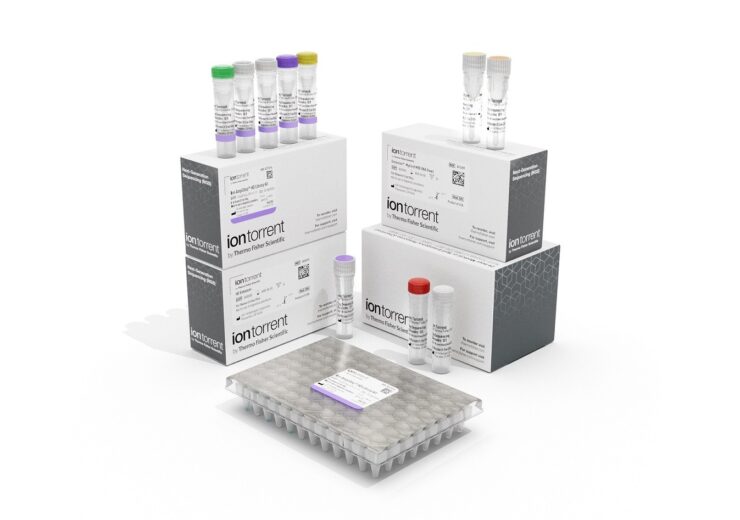The company’s new Ion Torrent Oncomine Myeloid MRD research use only (RUO) Assays are the first NGS-based tests to offer simultaneous DNA and RNA analysis for myeloid MRD assessment

Ion Torrent Oncomine Myeloid MRD Assays (RUO). (Credit: Business Wire/Thermo Fisher Scientific)
Thermo Fisher Scientific has rolled out a new next-generation sequencing (NGS)-based assay to support research in myeloid measurable residual disease (MRD).
Its Ion Torrent Oncomine Myeloid MRD Assays RUO (research use only) are said to be the first NGS-based tests to support simultaneous DNA and RNA analysis.
The tests are designed to offer a comprehensive and high-sensitive MRD assessment using blood and bone marrow samples and deliver the results within two days.
The end-to-end workflow of the assays, with an integrated informatics pipeline and a reporting tool, will minimise the users’ hands-on time and time to results, said the company.
Thermo Fisher Scientific medical affairs global head Luca Quagliata said: “MRD can help predict potential relapse in cancer patients but is not widely used for patients with AML due to lack of accurate, reproducible tests.
“With the Myeloid MRD Assay, laboratories may perform comprehensive MRD analysis of mutations in myeloid samples to inform future clinical options.
“We are also working with the Foundation for the National Institutes of Health Biomarkers Consortium as they assess future requirements for validation and standardization of MRD as a biomarker, with the goal of improving care and advancing treatment development for patients with AML.”
According to the company, current MRD detection methods are not effective in evaluating individual mutations, can track only a limited number of mutations simultaneously.
Its new Myeloid MRD assay has been designed for simultaneous testing and identification of more than 90% of common AML mutations and fusions, said Thermo Fisher.
In addition, the assay also detects as low as 0.05% allele frequency for crucial DNA mutations in 33 genes and evaluates more than 900 isoforms in 43 RNA fusion driver genes.
In a separate development, Thermo Fisher has announced the expansion of its dry powder media manufacturing facility in Grand Island, New York.
Through the facility expansion, the company aims to meet the growing demand for cell culture media used in the manufacturing of new vaccines and biologics.
The move is part of its $650m investment plan announced last year, to enable flexible, scalable and reliable bioprocessing production capacity, said the company.
